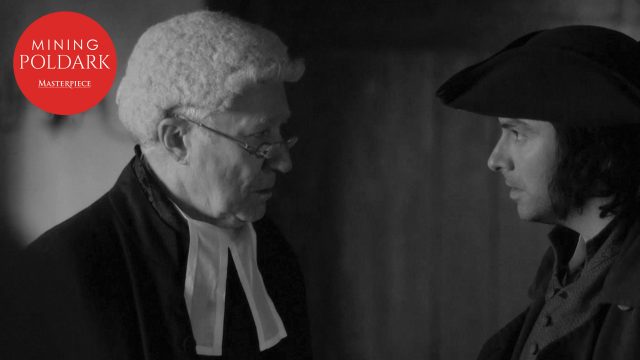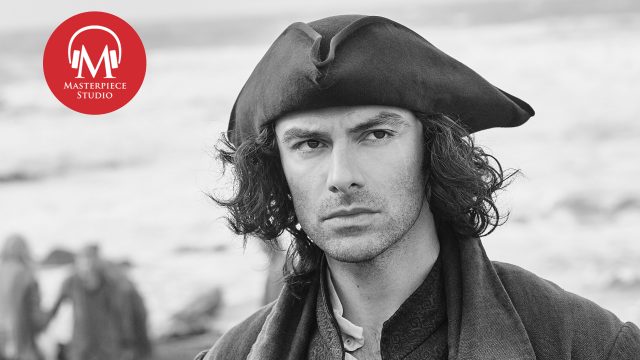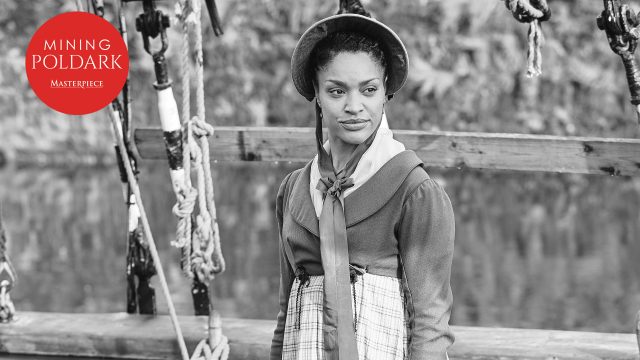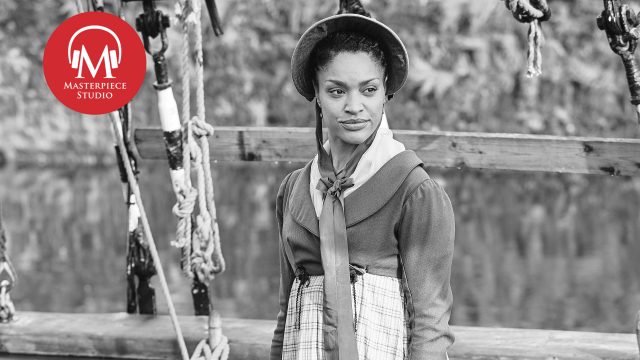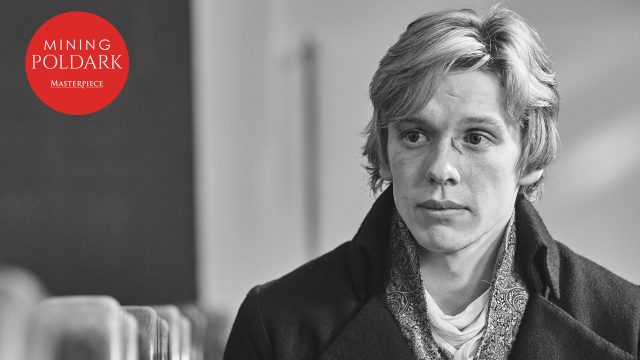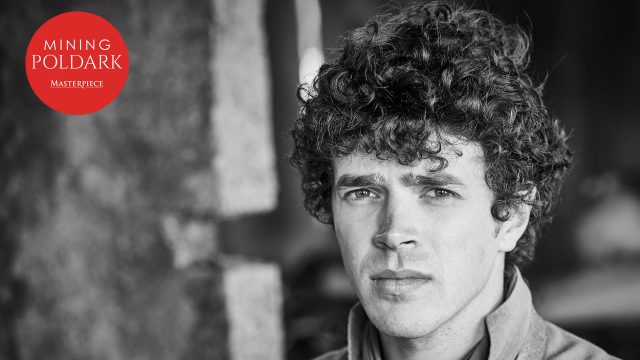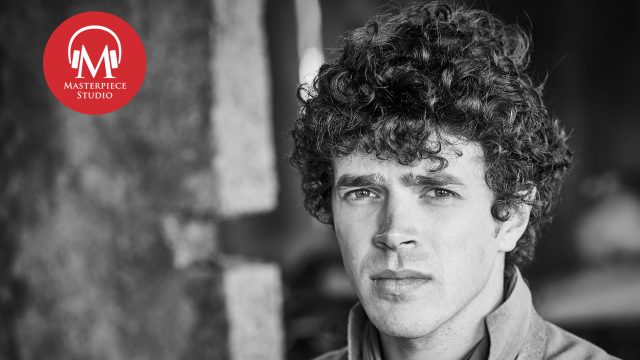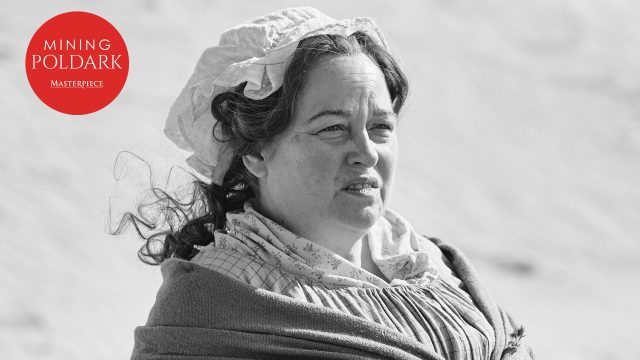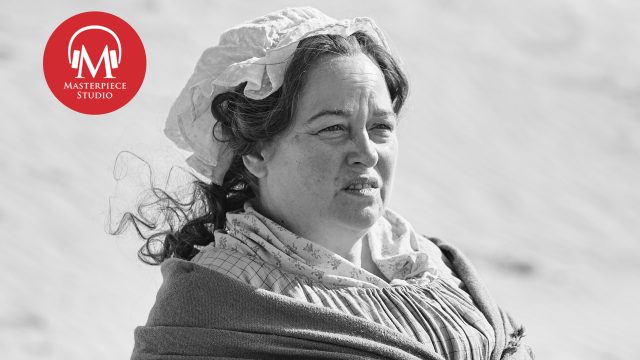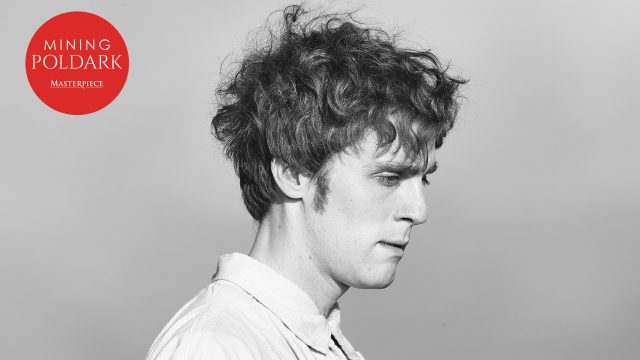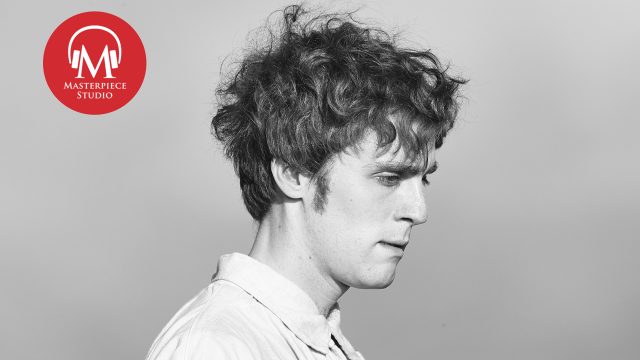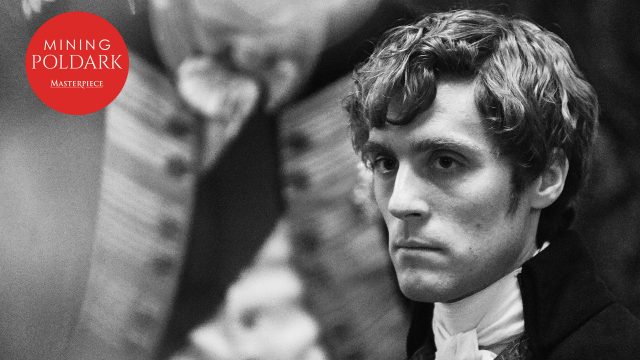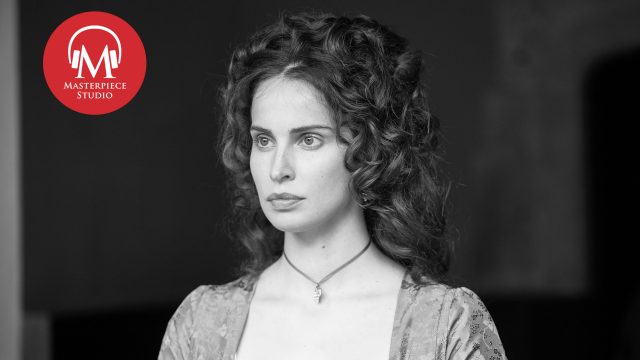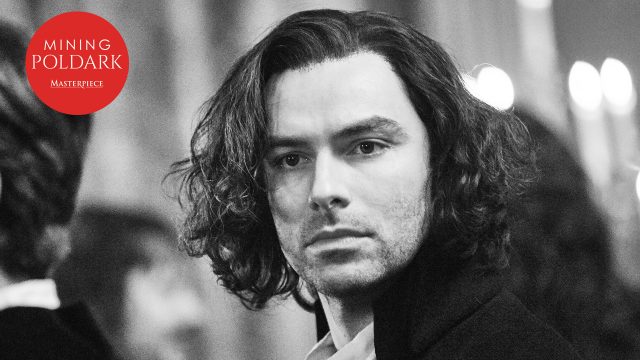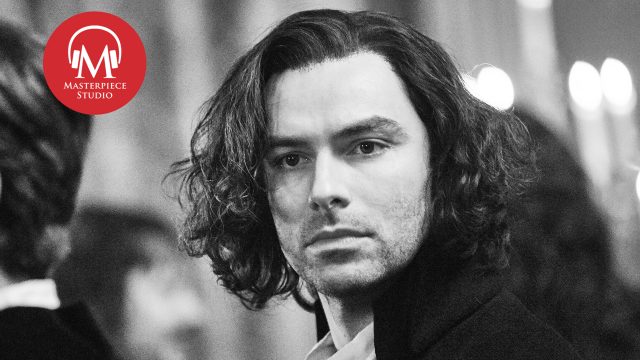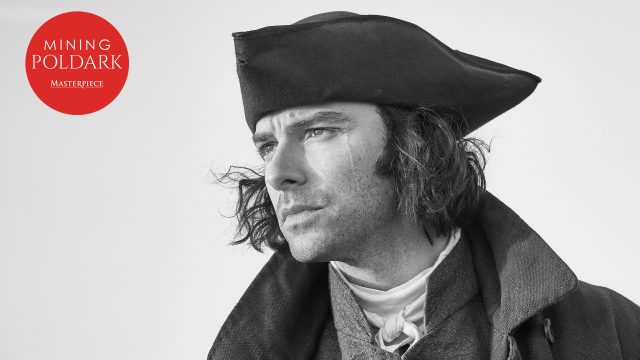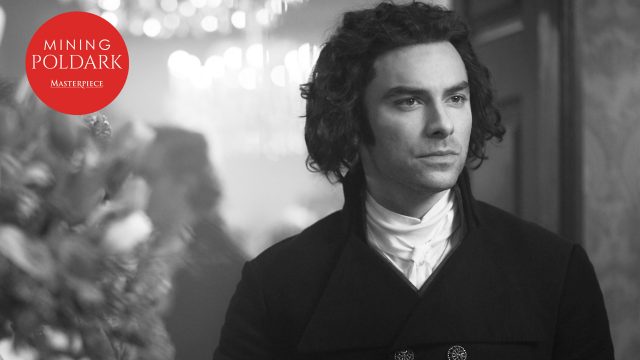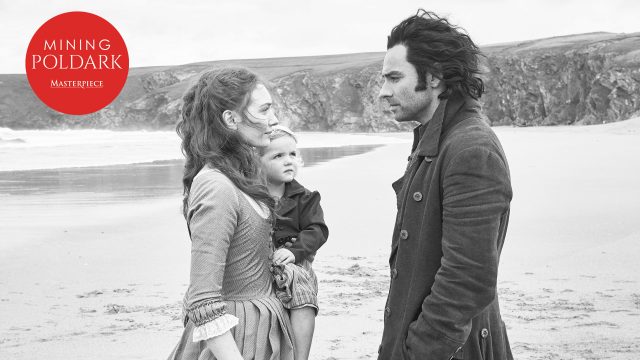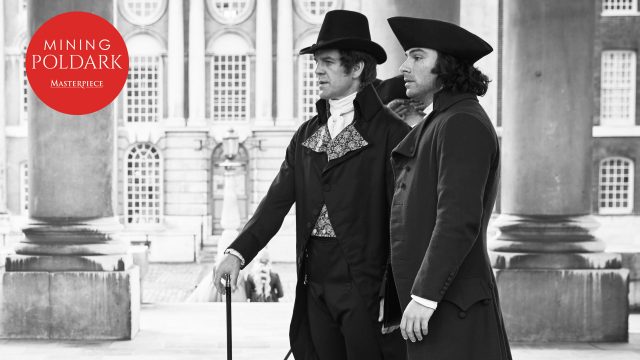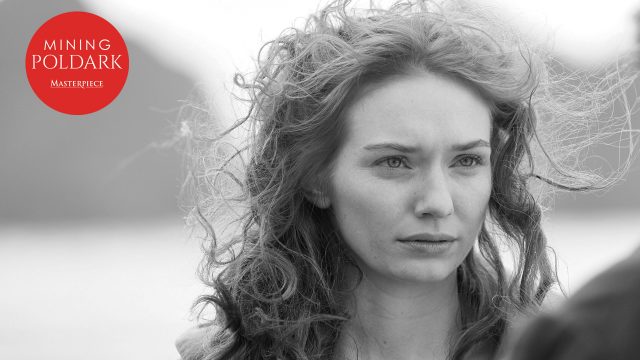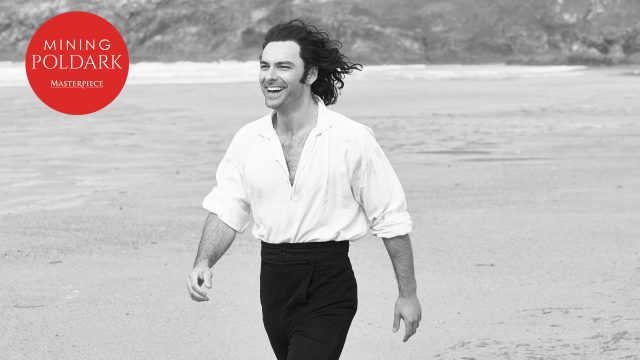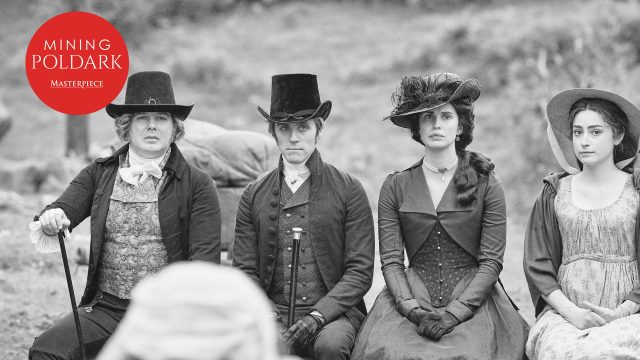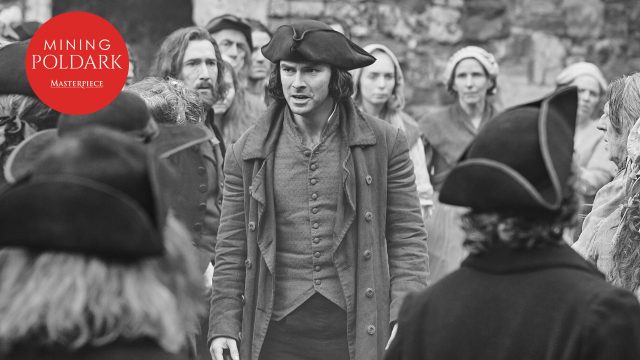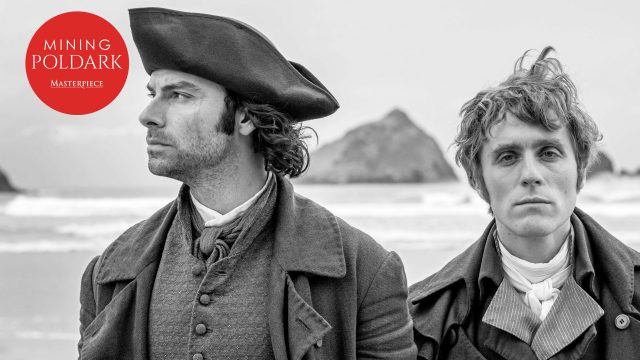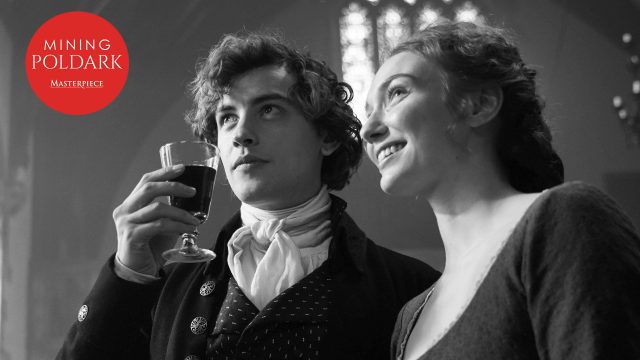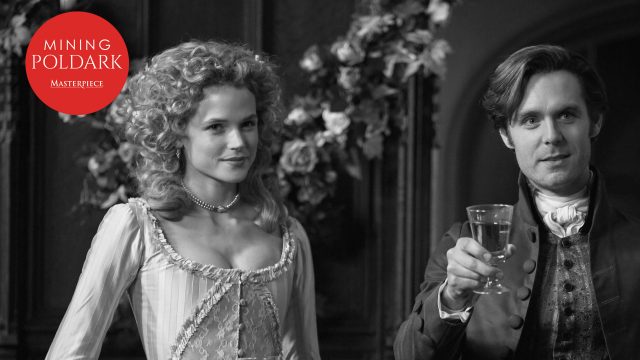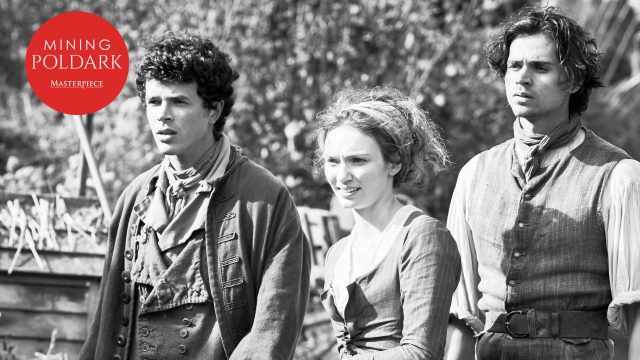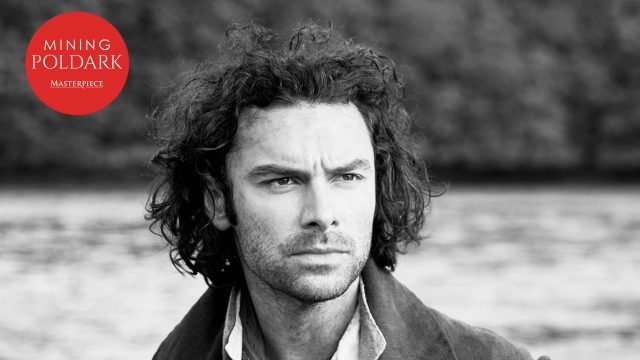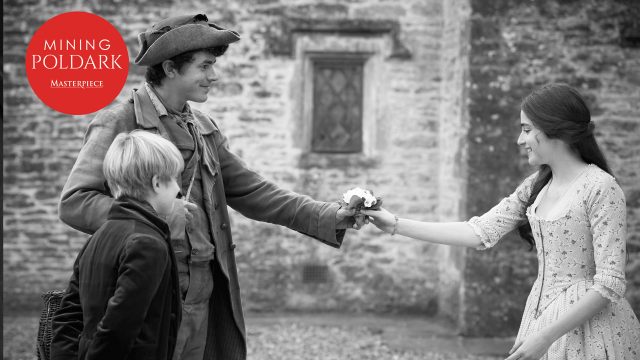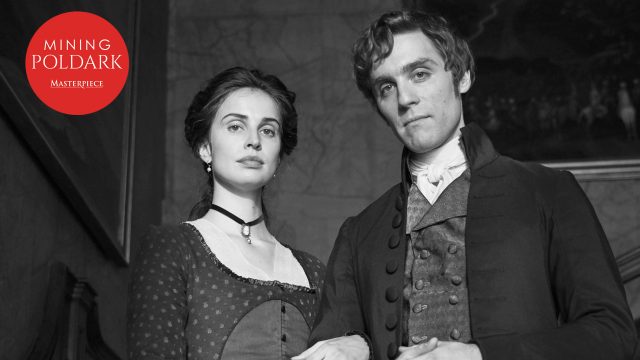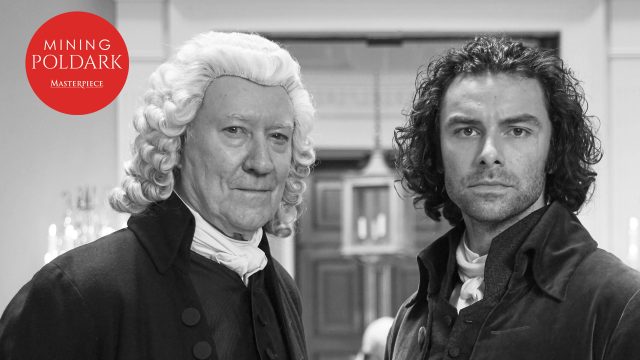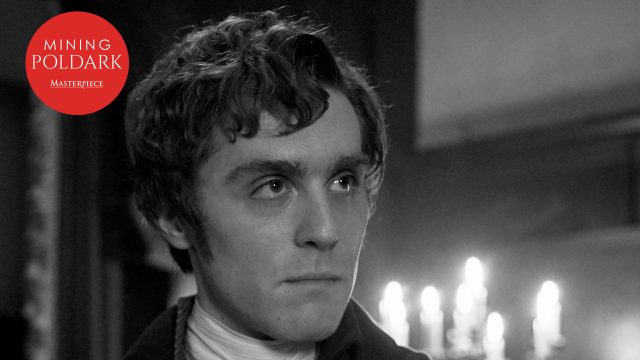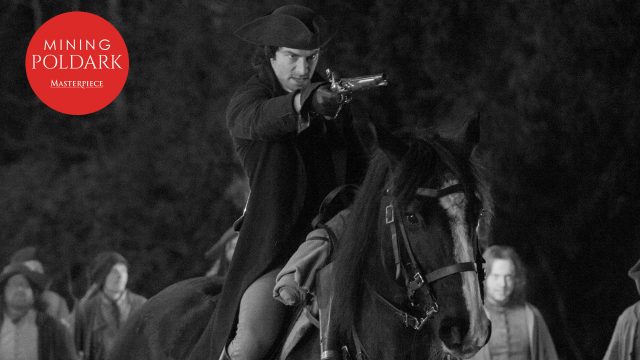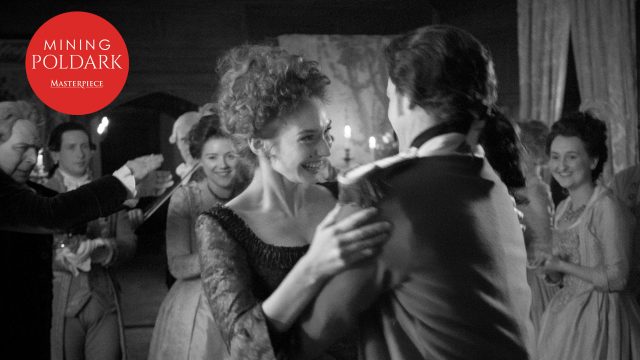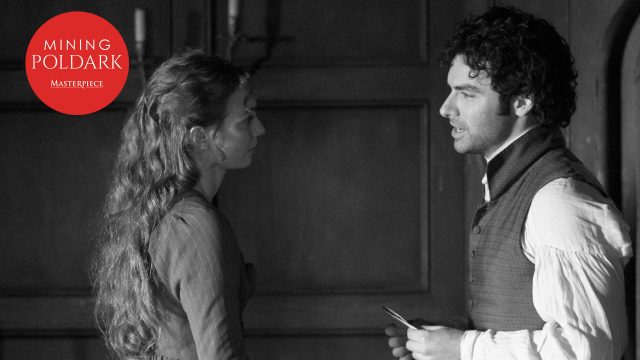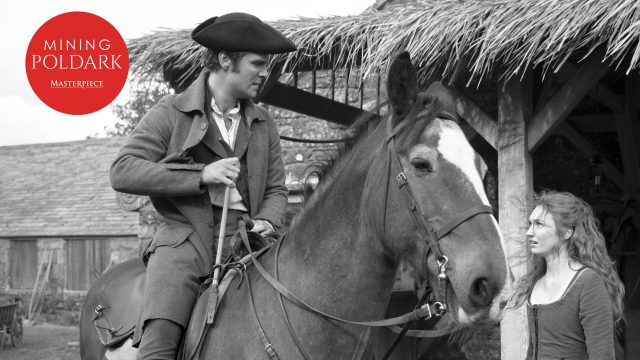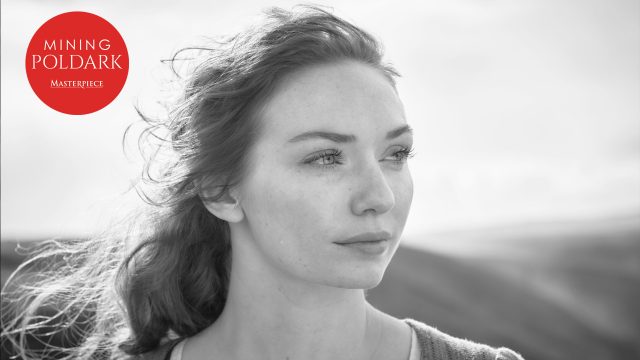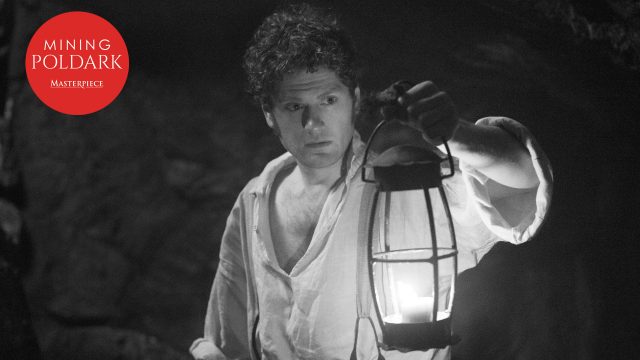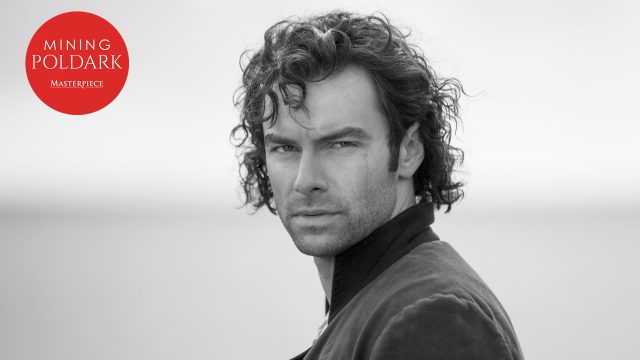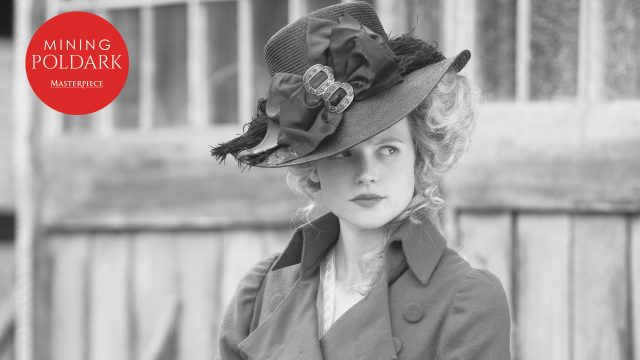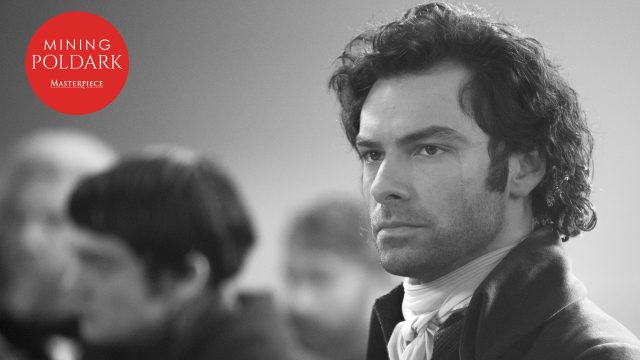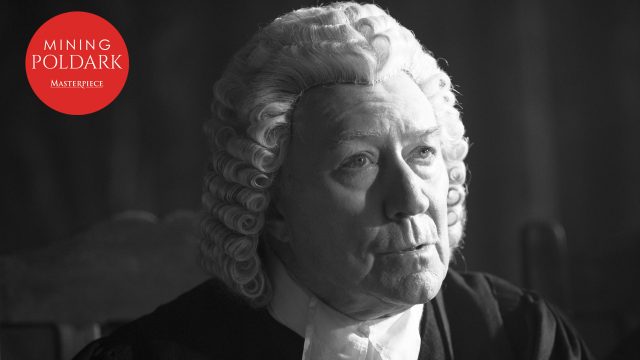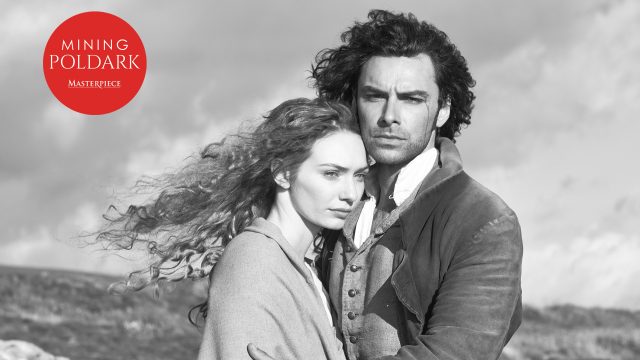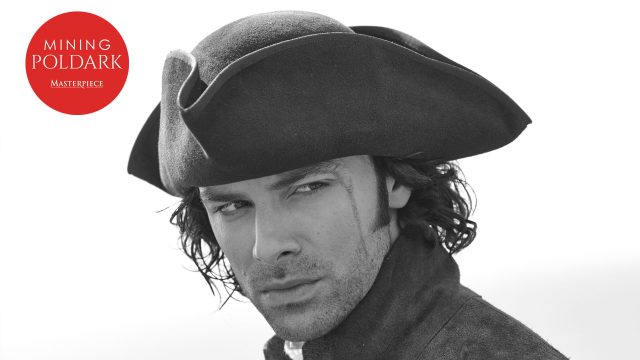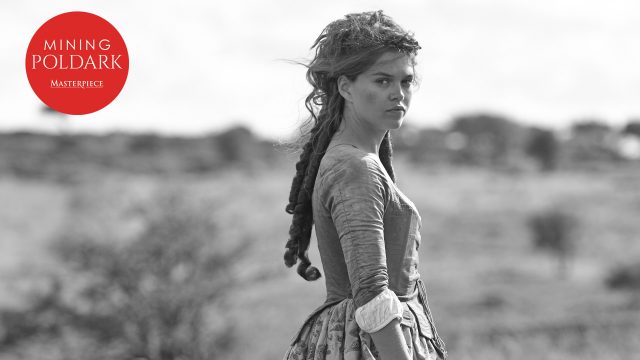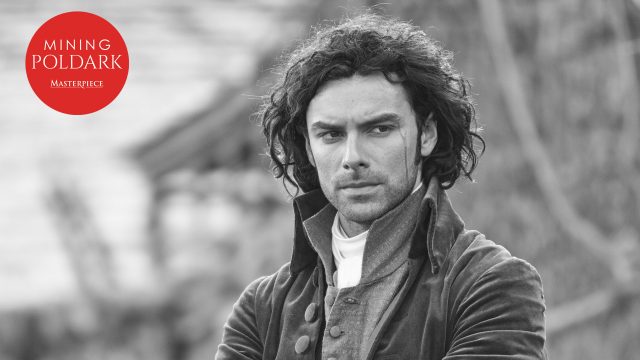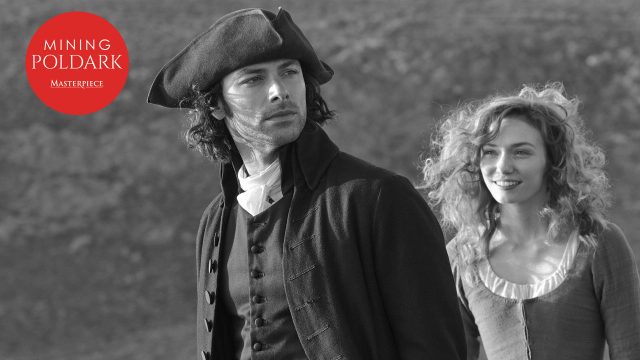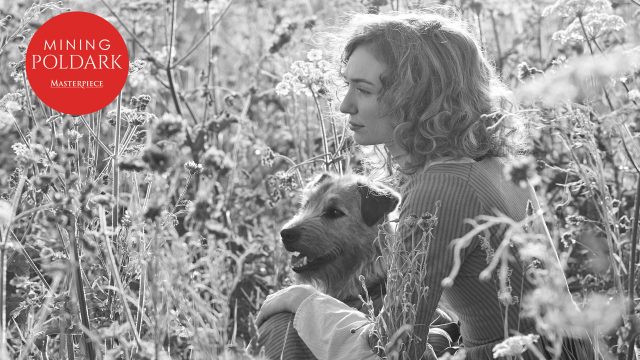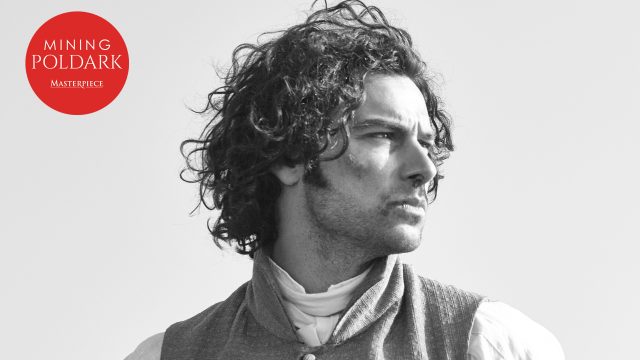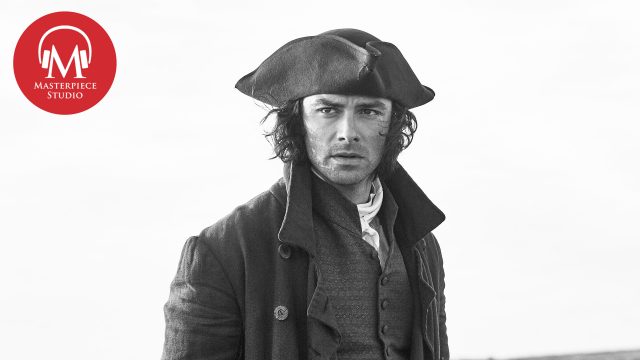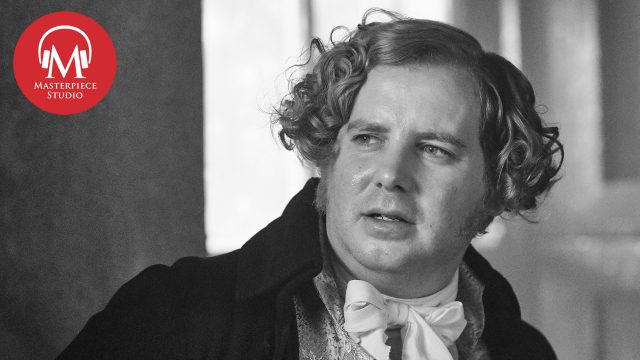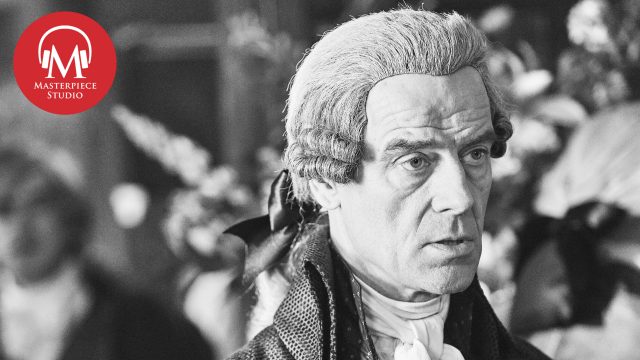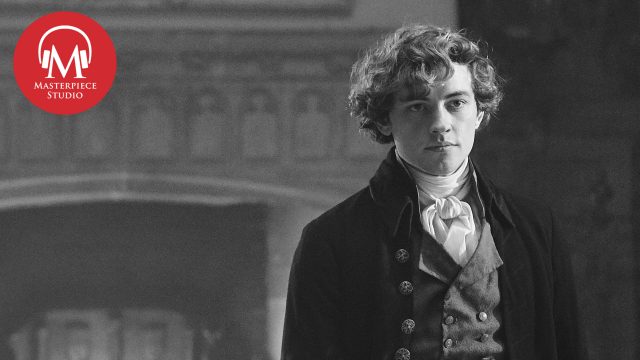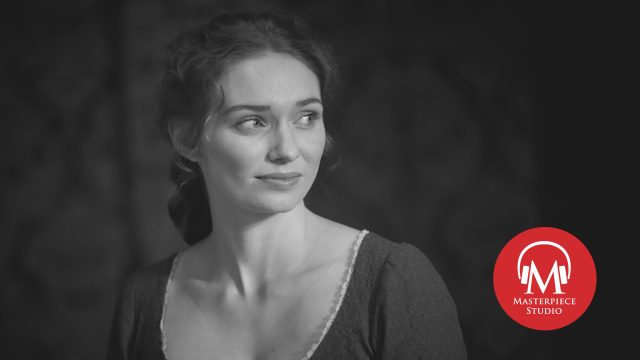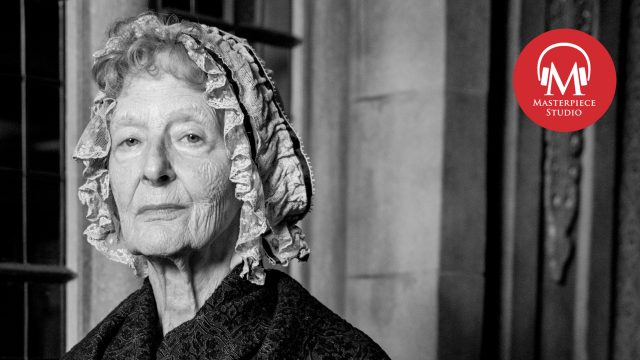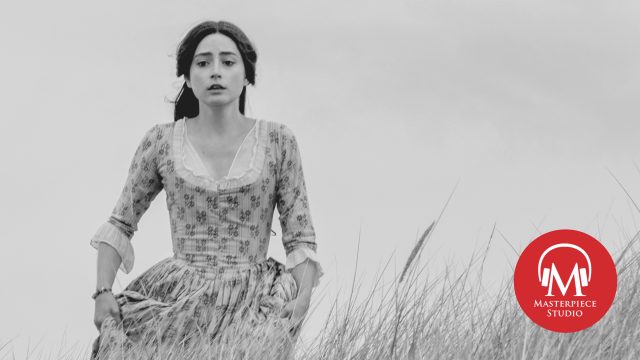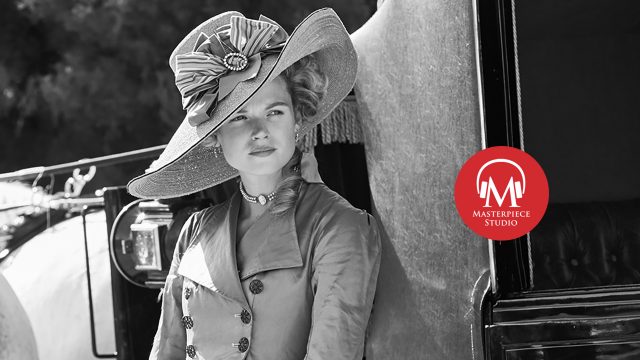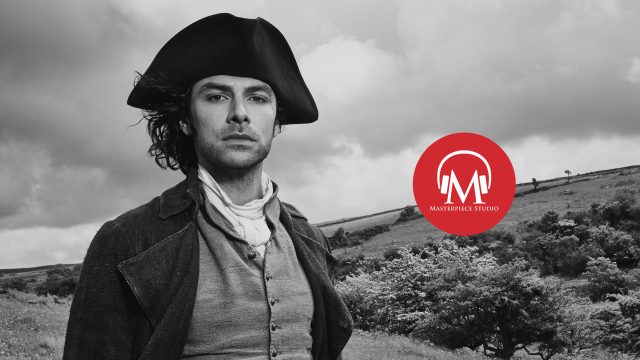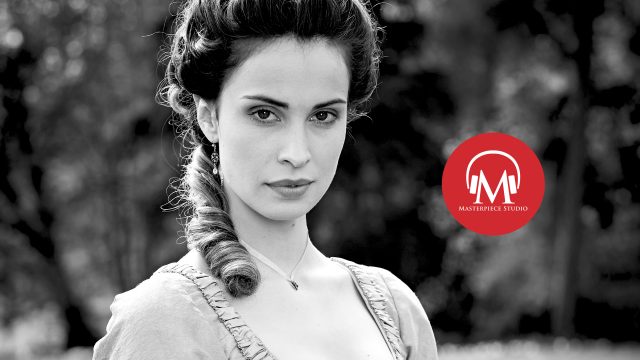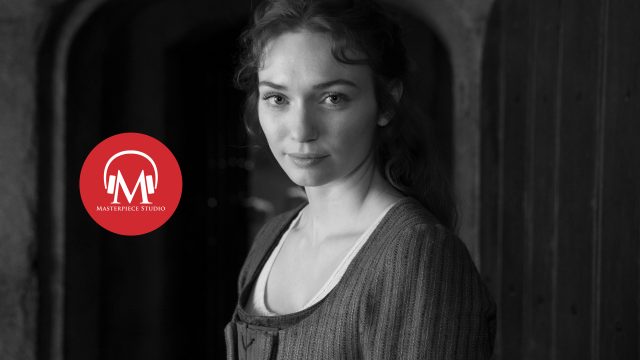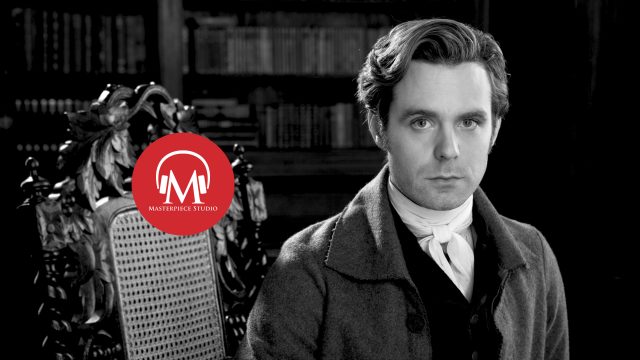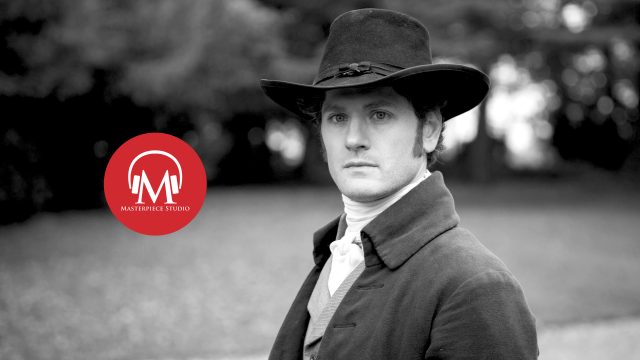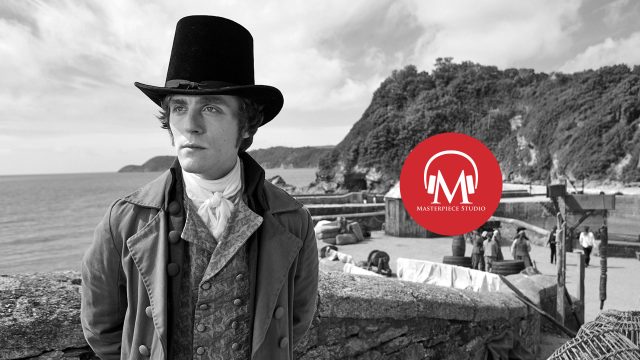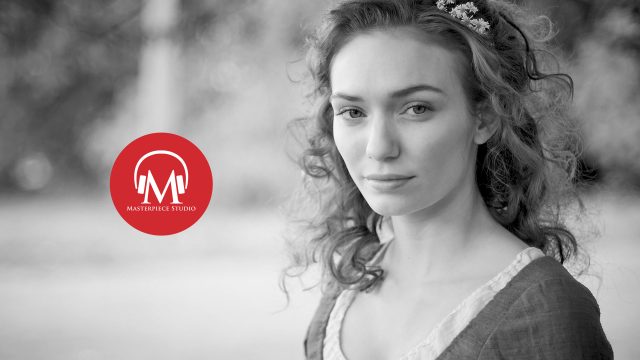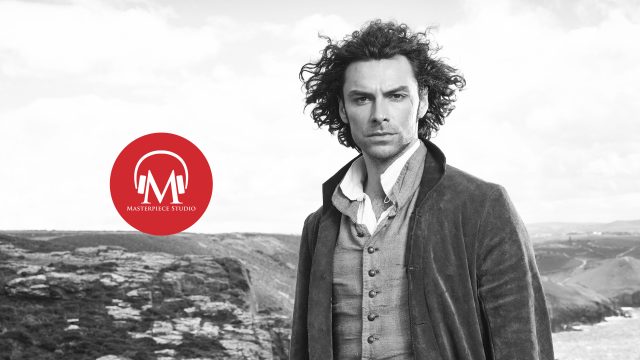——It’s ball season in Cornwall, and (almost) nothing good happens to our heroes at a gathering of the county nobles. Cousin Verity meets an alluring sea captain, sure, but Ross and Elizabeth’s obvious lingering chemistry gives Francis something to worry about. And we’re given our first real taste of George Warleggan, Poldark villain. And worst of all, a duel!
Download and subscribe on: iTunes | Spotify| RadioPublic
Transcript
Barrett Brountas: High-class parties. High-stakes wagers. Banking, mining, affairs of the heart. The second episode of this first season of Poldark sets up all the delicious dilemmas we’ll come to savor in the seasons still to unfold.
CLIP
George: Not dancing, Ross? Will none of the ladies have you? The whiff of soil is hard to swill off – but if one communes with peasants.
Ross D’you prescribe perfume?
George It covers a multitude of sins!
Ross Like money.
George: Indeed! For how else would a family of blacksmiths become bankers?
Barrett: With a touch of verbal poison, George Warleggan helps foster the growing tension between Poldark cousins Ross and Francis.
CLIP
George: We cannot choose our family. But we can choose our friends. And as a friend, I say to you, if ever you need my assistance…
Francis: What assistance might I need?
George: What any man needs — someone to alert him if he sees his friend being played for a fool.
Barrett: And Ross does himself no favors by hosting the star-crossed lovers, sea captain Captain Andrew Blamey and cousin Verity Poldark, at Nampara, prompting a duel in his front yard.
CLIP
Francis: When will it be convenient for you to meet me, Captain Blamey?
Andrew: As soon as you like, sir!
Verity: Andrew, no! Francis, please?
Francis: Get me a pistol!
Ross: Get one yourself.
Barrett: I’m Barrett Brountas, and this is Mining Poldark, a new podcast from MASTERPIECE that dives deep into the adventures of captain Ross Poldark and his Cornish companions.
We’re back with Robin Ellis, the original Ross Poldark from MASTERPIECE’s 1970s adaptation of Winston Graham’s iconic novels. But first, let’s ear from Robin as we share our re-cap cheatsheet. Where does it start, Robin?
Robin: It starts with a bang a single shot in one of the great old houses of Cornwall. Ross fingers a ring and ponders…
Barrett: Ross has reason to hope and reason to be crushed as he ricochets between optimism and defeat.
Robin: Demelza washes away the past and acquires a cape and a thirst for knowledge. Francis struggles. There’s a candlelit county ball for the greater good of Cornwall. Verity comes into her and learns about rigging ships.
Barrett: And we meet another love of Ross’s life: Wheal Leisure.
Robin: And it all ends with a picnic on the cliffs, outside the mine.
Barrett: And I wondered if we might even start off our discussion of episode two, like Ross and Judd with Wheal Leisure. I thought that the establishers here: the lone bell, a single hat on a peg, the abandoned ropes and beams — it all felt like a Western, and I almost expected to hear The Good, the Bad and the Ugly whistling in the background.
Robin: (Whistles.) Absolutely! I had the same sentiment. I think that was probably in the mind of the director as well, don’t you think?
Barrett: Yes! Totally. I think that it works on us subconsciously. You know, it’s raising the stakes through these Western conventions.
Robin: It does.
Barrett: Did you ever think of Poldark in those terms when you were making the series?
Robin: I frankly I did mostly when I was on horseback and I usually fell off after coming to those conclusions…one just can’t have those kind of thoughts while trying to control the horse. But certainly I did. All the English actors want to do a Western, you know? There’s one shot actually we did, it was that night and I rode up with my posse. I mean we were law officers, or something. And I really thought the shot looked like, you know Clint Eastwood or John Wayne. For a second, I just wallowed in that kind of fantasy, basically.
Barrett: So good.
Robin: Once in a lifetime.
Barrett: Judd is given this sort of important speech about mining that we’re to understand that for seasons to come we really need to understand mining.
CLIP
Jud: Tis in the blood, your father say. Mining, tis in the blood. Like a vein of copper. Tis the bread of life. Eat, sleep, live and breathe it….She’s your salvation, and your downfall. Make you reckless, make you bold. Many a friend it’d break, and many more will follow. Tis a fool’s game. Twill end in tears.
Barrett: This sets us up as Ross gets ready to reopen Wheal Leisure.
Robin: That’s right. It’s in the blood. And it’s very effective to see these two sitting opposite each other. One of them is a cynic and has grave doubts about the whole idea of opening the mine. The other one, Ross, may have doubts as well but somehow you feel there’s a new dawn here, that this is maybe something he can do in his hour of need of something to do because of what’s happened with Elizabeth. And it’s contrasted in the episode. And so you got this lovely balance. Charles Poldark says later on, you know, ‘I hope you’ve learnt about what it owns a mime what it means to own a mine, you could end up by by committing suicide.’ So you got the positive and the negative at the beginning.
Barrett: One thing that really interested me about the suicide of the mine owner is when we see George and his uncle Cary discussing Bassett’s suicide and what that means for them. George is concerned that it’s going to reflect poorly on them, and he almost…George is our villain, right? And he really starts to do some damage later in the episode as he’s sort of pouring poison into Francis’s ear about Ross and Elizabeth. But in this moment we see that George is more than one thing. He does feel concern about this mine owner’s suicide. George is complicated.
Robin: He is, and I think because Jack Farthing plays him, he develops a wonderfully complex character.
Barrett: So true.
CLIP
George: Will we be blamed?
Cary: Did we furnish the pistol?
George: We called in his loans.
Cary: No. We declined to extend them.
George: Does it not reflect poorly on us, that we let his pleas fall upon deaf ears?
Cary: Are we in the business of sentiment of profit?
George: These ancient families lack backbone. I wonder they survive.
Robin: So he sort of justifies himself at the end saying…
Barrett: Yes!
Robin: ‘We we the nouveau riche have got these lovely houses,’ and incidentally I noticed that the house itself, and it was in the first episode, as well, is full of light. It’s much lighter, it’s a modern house, compared with Trenwith, which is sort of wonderfully old-beamed and much darker. But you’re right. And the nuance of George comes through in that scene I think whereas Cary is completely cynical and unable to get to see any other side then gain them money. And yeah yeah that’s what he’s in it for.
Barrett: These big moments set off our characters. All of them are responding to the big moments like the dancing at the ball sets off our characters in different ways.
CLIP 10
George Your cousin is most attentive.
Francis Eh?
George To your wife.
Francis Oh, I don’t think he cares for dancing. He only came to please Verity.
Francis Who is that man?
George Captain Blamey? Master of the Lisbon packet. A pretty catch. And at her age …
Francis She won’t get many more chances? But Father couldn’t spare her.
George And Elizabeth would miss her. Though doubtless your wife would find ways of distracting herself.
Barrett So Ross goes and visits the prostitute. He’s angry, he’s hopeless. It’s just devastating Francis, sitting at that table that long table in that great big room by himself. And then Elizabeth is looking down on him realizing, uh oh.
Robin: It’s a long table somehow, you feel this, and there’s nobody there, he’s completely alone. And the long shot really tells that story. And Kyle, of course tells that story, Kyle Soller, he’s a wonderful Francis.
Barrett: I don’t know if our listeners know that Kyle is actually. the actor who the actor who plays Francis Poldark. is actually American and is from maybe Connecticut?
Robin: I think he is!
Barrett: Fun fact!
Robin He sent his audition in by phone. You know that’s what actors do these days. They have to hold their mobile phone in front of their faces, having learnt whatever sheet of paper they’ve got off their computer, and they play the scene to their phone and then they phone it in. We used to say actors were just phoning it in because they weren’t really trying very hard, but now literally in order to get a part you have to phone it in, fact. And that’s apparently what Kyle Soller did. And it was a success.
Barrett: Thanks goodness for the technology that allowed Kyle to portray Francis Poldark. So Robin, I actually almost felt when I was watching I felt almost as though I could plot poor Ross on a graph where he would have hope, and then it would rise, and then it would go down as his hope was crushed, and then it would go up again, you know. And all of these hopes were surrounding Elizabeth. You know, he thought he had a shot with her he thought he had another moment a couple times and then it would go down again. And in my mind I was overlaying that graph with the graph of Demelza’s fortunes, and they just sort of began a very slow ascent. And that’s something I liked about this episode is that Demelza is moving toward becoming more of a full person. And that you know, we see her ripping up the the sheets to make bandages, and we see her being super competent and we see her sort of expressing her opinions a little bit more, and I just love this sort of slow ascent that she’s beginning here.
Robin: You’re quite right, of course, in the in the books itself, you know, she was 13 or so when he when he picked her up. And by this time she’s 17, so time passes quite sort of quickly in film terms. But you’re right that there is a progression in Demelza which is very, very nice to watch and it has its sort of climax I think in that scene of of the library that had a kind of parallel with the scene that Ross plays in the mine earlier, because he quite early on in the in the scene he goes to the mine and he he lights the candle and he goes down in the mine and he uses the candle to search for copper, basically, to see if there’s a seam of copper in this old mine. And Demelza lighting her candle and going into the library in search, not of copper, but of knowledge, basically that wonderful shot of of old books and the harpsichord, she is searching for another world, a world that in a sense Judd is going to tell her in a minute in a rather shocking moment that she has no right to, she has no place in. You know, you don’t belong here he says. And she stands her ground and she denies that you know, she wants to get above herself.
CLIP
Jud What ‘ee be doin’ in there?
Demelza Jus’ lookin’.
Jud Jus’ lookin’?
Demelza There’s books – an’ maps…
Jud There be nothin’ in there f’th’ likes o’ we. Less we be gettin’ ideas above’s station?
Demelza No!
Jud Go ‘ome
Demelza Wha’?
Jud Back where ‘ee come fr’m. ‘Ee dun’t b’long ‘ere.
Robin Both moments of Ross and Demelza searching for something that might be significant in the future.
Barrett: I love that parallel you’re trying and I love that scene with Demelza because we had this great moment with her earlier in the episode where she’s out washing, and she’s and she says she has a lot to say about it about how she has to scrub herself like a buttock of beef.
CLIP
Demelza: Judas it’s cold. Ahh! It’s freezing. Ah. Ah. Satisfied?
Ross: Shouldn’t I be?
Demelza: Tain’t enough not to stink. A body must scrub herself raw as a buttock of beef to please some folk!
Robin: That was a pretty shocking phrase, I had to play it back, did she really say that?
Barrett: And so she’s in a way she’s sort of cleaning off you know. symbolically this old life. Right?
Robin: Yes, she’s washing that man right out of her hair as it were. She’s washing that past right out of her hair, and she’s got the hair to do it. That’s wonderful, that’s her own hair, that’s what she looks like in real life. So when she flung her head back and her wet hair went back. It was really true moment.
Barrett: I almost wanted like a slow motion back going.
Robin: Yes absolutely, with that kind of stream of water!
Barrett: So she’s cleaned herself up in a way and she’s cleaned off that past of the you know this sort of abuse and this this feral existence and now she entered the room where she is she’s searching for knowledge. And I appreciated that on that symbolic level of her growth and her beginning to have, as you say in your recap a thirst. But also what I love about Demelza is that this is also perfectly human because she is being a little sneak. And who among us would not be a sneak like that. I would be dying to go into that room and see what’s in there and open up the trunk and you know plink out a few notes on the ol’ harpsichord, unroll the maps and see what is this mysterious man up to and what is what’s in this room?
Barrett: Let’s take a quick break to hear from our sponsors…
Barrett: And then we get a little more of a sneaky Demelza, which I’m completely on board with, later in the episode when she’s out with Garrick and she notices Ross heading toward the water, and he dives in and takes a swim and he is as naked as the day he was born and she is riveted.
Robin: So she is yes. She keeps putting the flowers up in front of itself in case he spots her, but she’s determined to stay watching, isn’t she? She is.
Barrett: She is. She’s growing up. You mentioned that she was very young when she began and then now she’s she’s getting older she’s you know entering that sort of young womanhood and she’s alive and open to opportunities and open to knowledge, book learning and other, I think.
Robin: And her assertiveness is asserting itself as it were. And she plays on that when it’s needed. And you’re right it’s developing and she’s getting confident and well I mean she can see that Ross is attracted to that and tolerant of it and liking it in fact. And so she’s not discouraged from it really.
CLIP
Demelza ‘Ee tried a’ swizzle me but I beat ‘im down!
Ross I expected no less. A good day’s work for us both!
Barrett: There is a wonderful quality to Ross both in this series and in your original series, where he’s just sort of a little bit amused by Demelza in a lovely way, and it’s just almost imperceptible that he sort of gets a kick out of her, really.
Robin: That’s where he differs from the rest of his gentry class in a sense. He doesn’t stand on ceremony. He sees the qualities in people and he can see them in three dimensions and that gives a future to the relationship, otherwise there’d be no future.
Barrett: What made him that way? How come he’s different like that?
Robin: Well he’s been to America, for a start. He went to America very young, and obviously a bit of America rubbed off on him and he saw that there’s a world elsewhere, and that the world of Cornwall right down on the southwest corner of England is not the only place there is. And I think you know, he was what he was 22, 23 when he did that. And that’s that’s an age where you you inevitably absorb things and learn things and he comes back and he sees the limits of the society he’s coming back into, and he doesn’t like it.
Barrett: Well we love that about him. And speaking of the sort of class restrictions and the ball I feel that there’s something really interesting in this episode and that it dramatizes this rigid set of options available for women in late 18th century Cornwall and of that time. You have Demelza who basically has become a scullery maid. Elizabeth is being forced into this sort of hothouse flower role and then poor old Verity our perfect, lovable Verity. She’s 25 and she’s got one foot in the grave, basically as far as her father and family is concerned. She’s treated like garbage by them. They just want to keep her around as their servant, basically. But at the ball, she meets Captain Blamey, and there is some very charged discussion of ship terminology there. It almost has me blushing as they talk about the mizzens and the booms.
CLIP
Verity: A sea captain? How invigorating!
Andrew: One is seldom idle.
Verity: And so much to remember – the sails, the masts.
Andrew: Are you interested in rigging, ma’am?
Verity: Oh, exceedingly!
Robin: The booms, yes there’s one particular boom that is quite shocking, really. I mean that Is a priceless line, frankly. I’m sure she never thought she be asked that at a ball. And she has a lovely scene because she’s clearly not interested. I mean she’s interested, because he’s asking her. But nevertheless he finds that kind of an interlude very intriguing because he’s doing it in such a lovely gentle way to say he’s wooing her with his rigging.
Barrett: He is, and it’s just the most wonderful thing. I just think everyone should have a Verity in their lives. She’s just such a good person. I love her, she’s solid, she has good advice. I think that in your series, Ross and Verity seem to have had even more of an opportunity to lean on each other than in this one, where she’s basically under house arrest.
Robin: The writing, the adaptation was different, and in ours, there was a long scene between Verity and Ross after the card playing scene where he gets drunk and comes home, and it develops — it must be a 10 minute scene — and it did allow Verity to come out very strongly as a character and the relationship between the two of them somehow was was was was very evident in the scene. And this is the adaptation I think is probably truer to the book, it didn’t happen in quite the same way. Everything’s there but it’s happened in different order. You’re right.
Barrett: Speaking of that the differences we have a duel which is so exciting. It’s a great scene because you see everyone’s character in action. You know, how they behave.
CLIP
Charles Fight it out with fists, then. He’s not worth the risk of a pistol!
Francis D’you want this family to be a laughing stock?
Ross Francis, I urge you to consider…
Francis Consider what? That anyone may abuse our trust and take advantage of us?
Verity Francis, I beg you.
Francis I will have satisfaction! You, there! Act as referee.
Jud Aye, sur.
Barrett It tells us so much about who they are in this duel: that Francis is thin skinned and easily insulted, that Verity just wants to make peace, that Andrew Blamey must do the honorable thing ,that Ross wants to stop it and keep the family intact, and that Demelza wants to help and that she can be useful. So all of that comes together in this amazing duel.
Robin: It’s interesting you bring it bring out the characters as they’re portrayed in this scene, because it struck me that Francis is very aggressive, and he takes the moment after this devastating ball scene where he sees Ross and Elizabeth dancing and he’s basically very, very angry. And this is a good excuse to express his anger, really, so he he really goes at it inside, he rushes off the horse and rushes off around into the room and the fight is quite genuinely violent, in fact. And I just wonder also about Ross. I mean, Ross does say, ‘Oh, stop it, stop it, stop it.’ But he doesn’t literally put himself between Francis and Blamey, which somehow one might have expected Ross to do, and maybe he’s compromised slightly. I mean you might disagree with this, and you may be right that he’s compromised in the sense that it wouldn’t be such a bad thing if Francis sadly got shot in this duel.
Barrett: You’re right. Totally.
Robin: It struck me that Ross didn’t do all that much. He didn’t literally stand in front of them and say, ‘I’m not having this on my land. Get off my land and behave yourself.’ He didn’t say that, and I just wondered if that was intended by, I don’t know, by the production.
Barrett: I think you’re absolutely right. It kind of is though it wouldn’t be the worst thing if Francis drowned in the mine in episode one. It’s a sort of the same thing, like, ‘Oh no. Be careful.’
Robin: It is. It’s not malevolent, somehow it happens in spite of yourself, in a sense, doesn’t it, you know what I mean?
Barrett Yes, it’s human.
Robin: And in fact Elizabeth, when she rushes in you know, she rushes in and says, ‘Oh my God! Oh Lord, Oh Lord, Oh Lord you’ve let him die.’ I thought that was slightly over, not not the actress, I thought the character was being a little bit…and then suddenly when she realizes he’s not dead she thinks, ‘Oh, oh he’s not dead, okay fine.’ I don’t know, maybe it’s my cynical mind.
Barrett: Ross is not over it. He has this resentment still, I mean as much, as on the surface he’s trying to appear as though he is over it. Now, let’s talk about the end of the episode. It’s so good.
Robin: I love the way, before they go out for the picnic, he’s sitting at the table when finally he’s accepted the fact that it’s ‘It’s over’ in inverted commas. It’s over.
CLIP
Ross: Do I have half wit branded across my forehead?
Demelza: …no?
Ross: And yet I fell for it again! Built a castle out of winks and smiles. All the while…I should grateful! What clearer proof is needed?
Robin: And in a way that opens the door to them, doesn’t it, in a sense? That’s a lovely moment, the blinkers come off and he sees reality for what it is and accepts it. And that’s that’s good.
Barrett: It is. And there’s this quality of Ross that I just think is so wonderful. He’s really so much more vulnerable in this episode and you just see his hope and his disappointment washing over his face. He really does seem like a young man in this episode and he feels like such a fool. But what I love about Ross is that he picks himself up and decides we’re going to make something out of this.
Robin: He does, he does it’s very deeply in his character to do that I think.
Barrett: Yes. And that’s what we’re going to need him to do again and again.
Robin: And it’s also fascinating that you know Winston wrote this in ’45, and he, you know, he’s implying that the people who are working class who fought the war have a right to belong as well. They belong in society. Whereas in late 18th century England, the working class hardly existed except to go down the mine and die at the age of 40, basically.
Barrett: Now we have to talk about this episode: hero or hater, Ross Poldark, hero or hater. I think that he’s a hero because he has a vision for reopening the mine and because through his vision he is able to persuade the important men of the community to invest in this even without Francis. He’s a hero because he dances so well, because he’s able to sort of help Francis after he’s stopped the bleeding, I guess, because he picks himself up after learning about Elizabeth’s pregnancy and then also he’s a hero to me, because he buys Demelza a very pretty cloak.
Robin: It’s true. She looks a bit different at the end of the episode to the beginning of the episode, you’re right, and that’s down to him. I’m told that it’s really very uncomfortable to ride two on a horse. He put himself out to take her into town to buy that cape. So he’s a hero from that point of view, certainly for Demelza, anyway. She looked extremely pleased with herself when she came off the shop, didn’t she?
Barrett: She did. I love that.
Robin: It was adorable He’s clearly a hero. I mean I would say that, wouldn’t I? But he is a hero. He’s not a villain. And George is absolutely rightly said, you know, pouring poison in various people’s ears and to upset them and discombobulate them in the ball scene really really revealed himself for what he is and what he very much more will become in the series, the villain.
Barrett: What would you like to see happen next episode?
Robin: Well I don’t think it’s going to happen to you but I would love it that, you know, Ross and Demelza got together. But I think it’s very unlikely. What do you think?
Barrett: I think that I think that this sort of delicious tension would be great between the two of them. A tension between the three of them would be great, too. Ross, Demelza and Elizabeth. I would love to see more Demelza. And then next episode I won’t object if Ross decides to take another swim.
Robin: Yes, absolutely. Or even do some scything would be good, wouldn’t it?
Barrett: Where’s the scything I’ve heard so much about? When’s that gonna start?
Robin: I think that is that coming up because you know there’s a blue sky out there and it looks like spring to me. She’s collecting all those spring flowers and so he’s gonna have to prepare the ground to for a future for the future. So I think they’ll be a bit of scything going on.
Barrett: Oh that’s great.
Robin: And since it’s very hot you know the shirt will come off, probably.
Barrett It’s got to come off, or it can billow in the breeze, too
Robin It can billow in the breeze, yes.
Barrett: But I like that, he is preparing the ground for what’s to come in all the ways because there’s so much ahead. I can’t wait. And I look forward to speaking with you about episode three of season one.
Robin: Likewise Barrett. Thank you very much. It’s a pleasure talking to you about it, and in fact it brings back such lovely memories for me, so thank you.
Barrett: Thank you Robin. And I’ll speak with you again soon.
Robin: Bye Barrett!
Barrett In the next episode of Poldark, a last-minute wedding and rumors of romance.
CLIP
Ross: You know what people say of us?
Demelza: Yea.
Ross: If we behave like this, it will be true.
Demelza: Then let it be true.
Barrett That’s next time on Mining Poldark.
And you can join us in our rewatching adventure here on Mining Poldark by watching the entire series on PBS Passport — a new member benefit from your local PBS station. You can watch select MASTERPIECE titles like Poldark, Downton Abbey or Victoria as a part of the Passport experience. To learn more, visit pbs.org/getpassport.
You can also follow along with us on the the PBS Masterpiece Prime Video Channel, available as an add-on service to your Amazon Prime Membership.
Mining Poldark is hosted by me, Barrett Brountas, with co-host Robin Ellis. We’re produced by Nick Andersen, with help from Robyn Bissette. Meredith Wheeler is our field producer. Tina Tobey-Mack is our sound designer. Susanne Simpson is our executive producer. The executive producer of MASTERPIECE is Rebecca Eaton.
Sponsors for MASTERPIECE on PBS are Viking Cruises, Raymond James and The MASTERPIECE Trust. Poldark is a Mammoth Screen production for BBC, co-produced with MASTERPIECE.
MASTERPIECE Newsletter
Sign up to get the latest news on your favorite dramas and mysteries, as well as exclusive content, video, sweepstakes and more.













